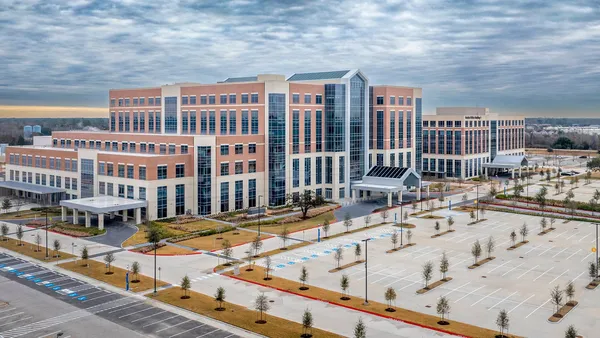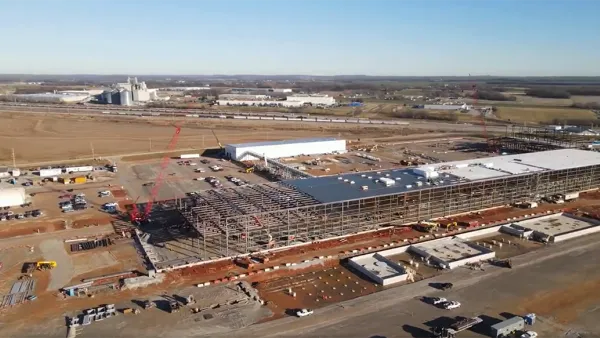Dive Brief:
- Following complaints by community activists about a lack of diversity on its $600 million headquarters project, Sherwin-Williams has added five companies to the job that are either racial minority- or women-owned.
- The building materials giant announced on Wednesday the firms that have been hired for its Building Our Future project, which includes a 1 million-square-foot global headquarters in downtown Cleveland and a 600,000-square-foot R&D center in nearby Brecksville, Ohio. The construction manager on the project is a joint venture of Fairlawn, Ohio-based builder Welty and Gilbane Building Co., which has an office in Cleveland.
- The selected firms will provide construction management services, with four of the five also providing skilled trades work including carpentry, millwork and painting. The firms are based in northeast Ohio, the company said.
Dive Insight:
Last September, leaders of Cleveland's Black community called for the city to rescind development aid and tax incentives for the project due to a lack of minority inclusion. They noted that none of the key architectural and construction firms on the project are minority-owned.
The group took issue with the city's commitment to provide $100 million in tax incentives for the project, saying if Black architects and contractors "are going to be excluded from the Sherwin-Williams project then don't build it here."
Sherwin-Williams responded to the allegations by saying it would work proactively to provide workforce opportunities for the community, including awarding contracts to minority-owned and women-owned businesses, as well as small businesses. The companies joining the project are:
- Adrian Maldonado & Associates.
- The AKA Team.
- Ozanne Construction Co.
- R.L. Hill Management Services.
- Regency Construction Services.
Additional firms are expected to be added for multiple roles as the project progresses, including design and landscape architects.
Nevertheless, local activists were displeased with the minor roles assigned to the new firms. The day after the announcement, civil rights groups and Black construction workers protested in front of Sherwin-Williams' current headquarters in Cleveland, demanding more high-level roles for disadvantaged and small companies.
"They only want to give us peanuts, and we're better than peanuts," said Norm Edwards, the leader of a local Black contractors group, according to 19 News. "We're talking $25 to $30 million contracts to White contractors and $100 to $200 thousand for the Black contractors."
Sherwin-Williams Vice President of Global Corporate Communications Julie S. Young noted that the company has taken a "deliberate and consistent approach" to creating significant opportunities on the project for multiple minority- and women-owned firms.
"It is unclear why the Black Contractors Group, or any group interested in diversity and inclusion, would take issue with including more minority- and women-owned businesses versus less," she said in an email.
"We will not allow any one organization to dictate the specific firms that receive contracts on our project, nor will we respond to the tactics of any outside organization seeking to influence our process through threats or intimidation," she said.
In its press release, Sherwin-Williams reiterated its commitment to bringing a diverse set of businesses to the project.
"Since the beginning of this project, it has been our goal to involve local organizations, especially those that are minority owned and female owned, throughout the design and construction processes," said John G. Morikis, Sherwin-Williams CEO. "We look forward to announcing the involvement of additional minority-owned, female-owned and small businesses as we move forward."
This story has been updated to include Sherwin-Williams' reaction to the protest.














